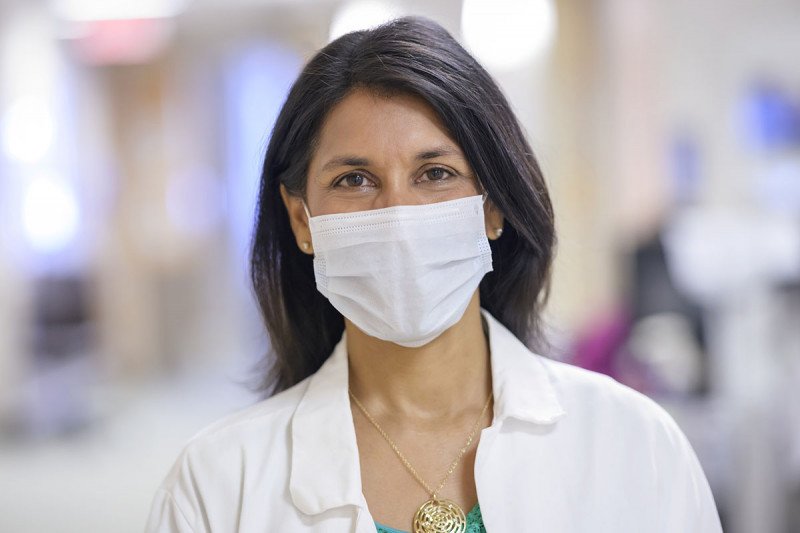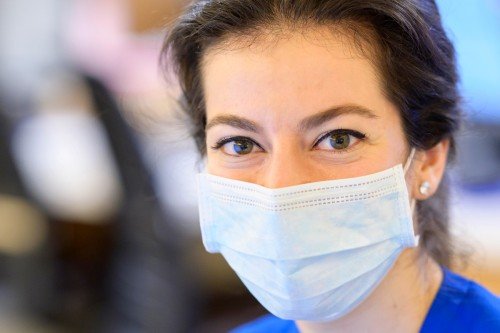
Infectious disease specialist Monika Shah says people with cancer are especially vulnerable to the flu because the disease and its treatments can weaken the immune system.
Anyone can get the flu, which is why everyone should get a flu shot.
Join a panel of MSK experts for an information session on November 9, during which they will answer your questions about this year’s flu season and what it means for people with cancer in light of COVID-19.
The flu can be an especially serious illness for people with cancer and their caregivers. Memorial Sloan Kettering infectious disease specialist Monika Shah answers common questions that people with cancer may have about the flu, and explains why now it is more important than ever for people to protect themselves against the virus.
Is the flu really that bad? Is it just a bad cold?
No, the flu is more dangerous than a cold — it can make even healthy people very sick. In the United States alone, hundreds of thousands of people are hospitalized with the flu each year, and thousands die. People with cancer are especially vulnerable to the flu because the disease and its treatments can weaken the immune system and make it hard for your body to fight off the virus.
Who should get a flu shot? Can I get one even if I have cancer?
The very best way to protect you and your family is to get a flu shot every year. Even though it may not be 100% effective, a flu shot can reduce the severity of symptoms if you do become infected. For most people with cancer, it’s recommended to get the vaccine regardless of the type of treatment you’re receiving. Plus, getting the shot can reduce the risk you will infect others. This protects people around you, including those more vulnerable to serious flu illness, such as children, elderly adults, and people with cancer.
It’s even more important to get a shot this flu season because of COVID-19. While much is still unknown about what happens if you get infected with both viruses simultaneously, people who have cancer may be at higher risk for complications.
Can I get the flu from a flu shot?
No, you can’t catch the flu from a flu shot. The injectable vaccines given today are made from an inactivated (killed) form of the flu virus or from very specific genetic pieces of that virus. The shots cannot cause infection and illness. The only possible side effects of a flu shot are soreness at the injection site, minor aches, or a slight fever. Flu shots have been conclusively proven safe and effective.
MSK infectious disease specialist Monika Shah debunks common myths about the flu vaccine.
When should I get a flu shot?
The best time to get a flu shot is in September or early October to protect yourself throughout the flu season.
Where should I go to get a flu shot?
It’s easy to get a shot: Contact your doctor’s office or seek out one of the many local pharmacies that offer flu shots. You can use this Vaccine Finder tool to find a vaccination location near you. If you have questions about which vaccine is best for you, talk to your doctor.
What additional steps can I take to protect myself from the flu?
You can protect yourself from the flu the same way you would from all viral infections that are passed among people primarily through droplets in the air or on surfaces, like the common cold: Wash your hands often, for at least 20 seconds with soap and water, or use an alcohol-based hand sanitizer. Do not touch your eyes, nose, or mouth with unwashed hands. If you go outside, keep a safe distance from other people, at least six feet. And if someone in your household has symptoms, maintain a safe distance from them, preferably in a separate room.
More information about the flu and how to protect yourself from infection is available from MSK and the Centers for Disease Control.


